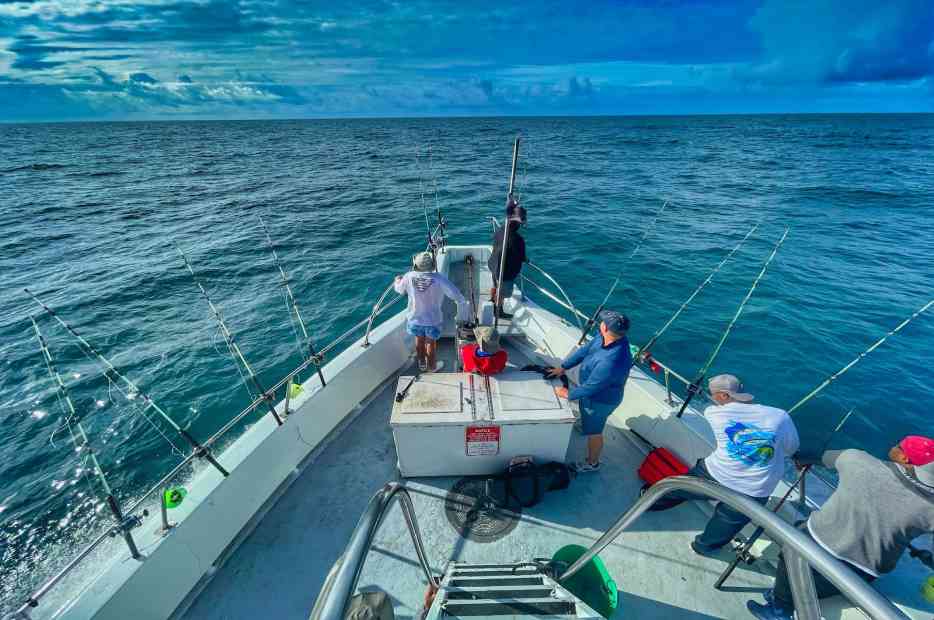Introduction
Fishing is one of the most popular outdoor activities in the world. There are few things more relaxing than sitting on a boat and waiting for your line to bob up and down in the water. If you plan on taking part in this activity, there are some things that you should do in preparation for your trip.
Find the best Fishing Charters
One of the first things you should do when looking for a charter is to find one that’s close to where you want to fish. You don’t want to have to drive across the country just for your trip, and if you can cut down on travel time by booking a marlin fishing charters then that’s what you should do.
Next, make sure it has good reviews online and can provide references from others who have used its services in the past. A good safety record is also important; if they’ve had any accidents or issues with their captains and crew in previous years, this may give cause for concern (though not necessarily). The final thing is reputation: Are people talking positively about this company? If so, then chances are they’re worth checking out!
Get Fishing Rods
Whether you’re fishing from the shore or a boat, a rod is essential. Choosing the right one will make your experience much more enjoyable.
A good rod should be able to cast smoothly and maintain its shape after casting. You’ll also want to consider what type of fishing you’ll be doing:
- If you’re fishing in saltwater, choose a rod made out of graphite or fiberglass with plenty of backbone (the amount of strength needed for fighting larger fish).
- If you’re going to be targeting smaller fish like trout or panfish, aluminum rods are best. These are easier on your hands because they flex at impact instead of snapping back like steel-framed rods do when dealing with heavier catches.
You may be tempted just pick up one rod and go with it; however, bringing multiple rods can make things easier down the road if something breaks unexpectedly like these fishing rods for sale
- Having two rods allows someone else on your trip (such as someone who doesn’t know how) to use one while yours is being repaired. This way they won’t have to wait around while others finish their catches before getting started themselves!
Bait and Tackle
Bait and tackle are important for catching fish. Bait is what you use to get the fish interested, while your tackle is what holds on to it once that happens.
You may have heard of a few different baits and ways to rig them, but there are a few things you should know about each before heading out on your next fishing trip:
- Live bait – You can buy live minnows or leeches at certain grocery stores. If you buy frozen worms from Walmart’s freezer section, just make sure they’re thawed completely before using them as bait!
- Artificial lures – There are many types of artificial lures available on the market today, including spinners and spoons that imitate insects like flying ants or grasshoppers; plastic worms used in freshwater fishing; jigs which resemble small fish; spinnerbaits that look like injured crayfish swimming away from danger; crawdad imitations known as crayfish imitations (though these aren’t really crawdads); soft plastics such as tubes rigged with hooks when fished around cover such as rocks or trees near shoreline areas where bass tend to hang out under structure like this during summer months when they’re seeking shade from intense heat waves caused by global warming resulting from excessive greenhouse gases produced by humans burning fossil fuels such as gasoline because we don’t have any public transportation system yet so everyone drives everywhere instead which makes our air quality worse than it already was due both pollution caused by vehicle exhaust fumes plus those same vehicles emitting CO2 emissions every time someone gets behind wheels–so anyway back onto topic here…
First Aid Kits
Your first aid kit should include the following items: bandages and gauze pads, antiseptic wipes, tweezers (to remove ticks), antibiotic ointment, waterproof tape, a pocket knife, aspirin or ibuprofen tablets (for pain relief), an insect repellent that contains DEET, scissors and safety pins.
- Keep your kit in an easily accessible location like a backpack compartment or at the bottom of your boat. If you are fishing by yourself then keep it in an easy-to-reach spot on shore if possible. This way it can be accessed quickly if needed without having to go through everything else in your bag trying to find it.
- After using any medication from your first aid kit make sure you sterilize anything that may have touched your skin with water from either freshwater or chlorine bleach solution before putting it back into the bag so as not to spread germs or bacteria around camp when using again later on.*
Have the best Fishing Trip with proper preparation.
One of the best things about fishing is that it can be done anywhere, anytime. Whether you’re just looking for a relaxing day outside or you want to challenge yourself with a planned trip, there are some things you should do before going out.
- Research the area you will be fishing: Different regions have different species of fish as well as regulations around them (such as size limits). If a specific species is illegal in your area, then it’s better not to waste time and energy trying to catch one anyway
Conclusion
These are just a few things to prepare for when you are going on a fishing trip. As we said before, having the right equipment is key. Make sure you have everything from the best fishing charter services to tackle and bait ready before heading out on the water with friends or family members.
